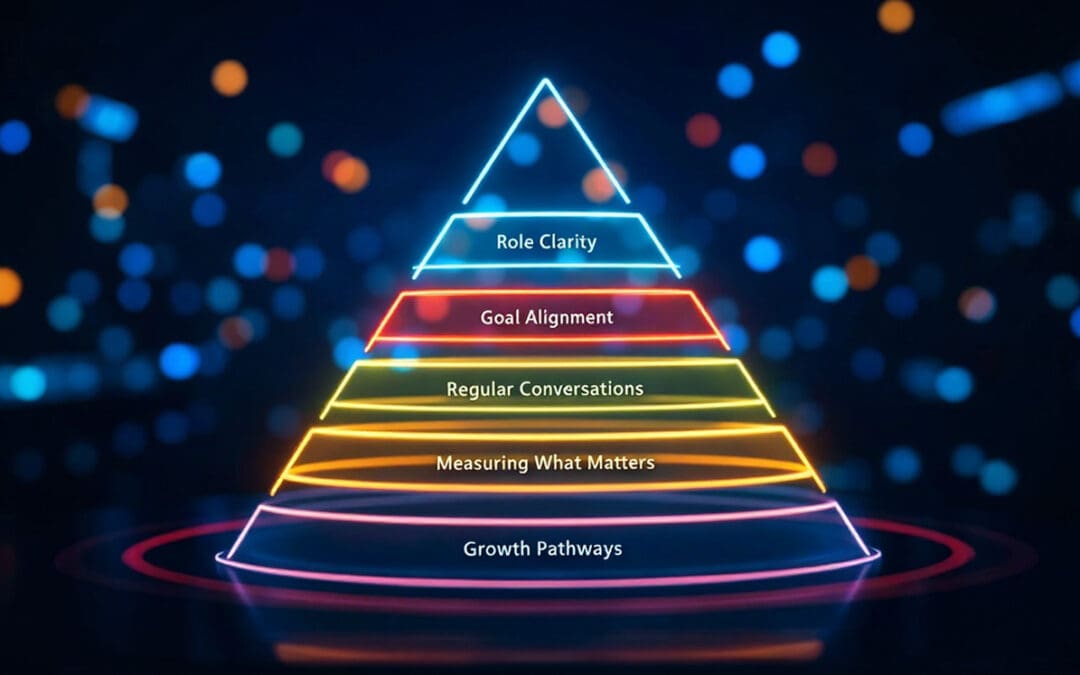
Why Emotional Intelligence Matters for Managers
In today’s workplace, technical expertise alone doesn’t make a manager successful. Emotional intelligence (EI)—the ability to understand, manage, and effectively use emotions—plays a crucial role in shaping a positive work environment. Managers who focus on developing emotional intelligence can create stronger connections, resolve conflicts efficiently, and inspire their teams to perform at their best.
What Is Emotional Intelligence?
EI consists of five core components:
- Self-Awareness: Recognizing and understanding your emotions.
- Self-Regulation: Managing emotional responses and maintaining a balanced approach under stress.
- Motivation: Channeling emotions toward positive goals.
- Empathy: Understanding the emotions of others.
- Social Skills: Building relationships and inviting collaboration.
These skills enhance not just individual performance but also team dynamics, making them invaluable for managers.
The Benefits of EI in Everyday Interactions
Managers interact with employees daily—through feedback sessions, team meetings, or casual check-ins. Developing emotional intelligence can transform these interactions into opportunities for growth and engagement.
- Building Trust: Employees are more likely to share ideas and concerns when they feel understood. A manager who practices empathy creates a safe space for communication.
- Reducing Conflict: Self-regulation helps managers stay calm and approach disputes constructively, leading to quicker resolutions.
- Boosting Morale: By showing appreciation and understanding, managers can motivate employees to go above and beyond.
Practical Steps for Growth
Improving emotional intelligence is a journey, but small steps can lead to big changes. Here’s how you can get started:
- Reflect on Your Emotions Take a few minutes each day to consider how you’re feeling and why. Self-awareness begins with understanding your own emotional triggers. Use tools like Performance Scoring’s feedback features to identify patterns in your communication style and leadership approach.
- Practice Active Listening During conversations, focus fully on the speaker instead of formulating responses. Reflect back what you hear to show understanding and build trust. Check out our meeting management solutions for structured communication strategies.
- Develop Empathy Try to see situations from your employees’ perspectives. This doesn’t mean you need to agree with them, but it shows that their feelings are valid. Incorporating empathy into your leadership style can improve relationships and performance.
- Respond, Don’t React When facing challenges, pause before responding. Thoughtful responses reduce misunderstandings and encourage collaboration, especially in high-pressure situations.
- Cultivate Positive Communication Celebrate successes and provide constructive feedback that uplifts rather than discourages. Use tools like Performance Scoring’s goal tracking to align feedback with progress.
The Ripple Effect of Emotional Intelligence
When managers commit to developing emotional intelligence, the benefits extend far beyond their individual interactions. By modeling empathy, self-awareness, and effective communication, they set the tone for a workplace culture that values emotional connection and collaboration. This approach inspires employees to follow suit, fostering:
- Higher levels of engagement, as employees feel understood and motivated.
- Stronger team dynamics, built on trust and open communication.
- Greater organizational success, driven by cohesive and empowered teams.
Embracing emotional intelligence isn’t just an investment in personal growth—it’s a catalyst for transforming the entire workplace.
Photo by Олег Мороз on Unsplash





